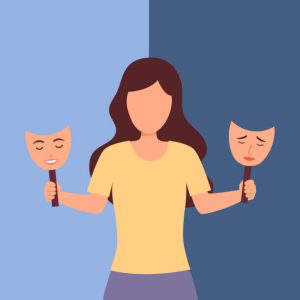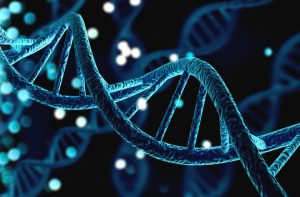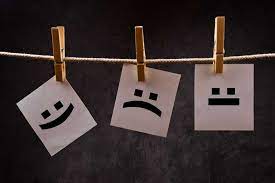Do you know the difference between borderline personality disorder and bipolar disorder? Many people don’t, and the two conditions are often confused. In this article, we will discuss the key differences between these two disorders. Remember that there is a lot of similarity between BPD and bipolar disorder. This can make it difficult to know which disorder someone has. However, knowing the differences is important, as it can help you get the right diagnosis and treatment.
Contents
- 1 What Is Borderline Personality Disorder?
- 2 What Is Bipolar Disorder?
- 3 Difference In The Symptoms Of Borderline Personality Disorder and Bipolar Disorder
- 4 Difference In The Causes Of Borderline Personality Disorder and Bipolar Disorder
- 5 Difference In The Negative Impact Of Borderline Personality Disorder and Bipolar Disorder
- 6 Difference In The Diagnosis Of Borderline Personality Disorder and Bipolar Disorder
- 7 Difference In The Treatment For Borderline Personality Disorder and Bipolar Disorder
- 8 Difference In The Prognosis Of Borderline Personality Disorder and Bipolar Disorder
- 9 Helping Someone Who Is Suffering From Borderline Personality Disorder And Bipolar Disorder
- 10 Conclusion
- 11 A Word From Therapy Mantra
What Is Borderline Personality Disorder?

Borderline personality disorder (BPD) is a mental illness that is characterized by unstable moods, relationships, and behavior. People who have this disorder often have a hard time controlling their emotions. People with BPD often have intense emotions that change rapidly. They may also have difficulty regulating their emotions and behaviors. This can lead to impulsive actions, such as self-harm or risky sexual behavior, and chaotic relationships.
What Is Bipolar Disorder?

Bipolar disorder is a mental illness that is characterized by extreme mood swings between depression and mania. During periods of depression, people with bipolar disorder may feel very sad or hopeless. They may lose interest in activities they once enjoyed and have problems sleeping and eating. During periods of mania, people with bipolar disorder may feel very happy or excited. They may have a lot of energy and be unable to sleep. They may also engage in risky behaviors, such as spending a lot of money or having unprotected sex.
Difference In The Symptoms Of Borderline Personality Disorder and Bipolar Disorder
Symptoms Of Borderline Personality Disorder
- Intense, rapidly changing emotions: People with BPD may feel very happy one minute and very sad the next.
- Difficulty regulating emotions: People with BPD may have a hard time controlling their emotions and behaviors.
- Chaotic relationships: People with BPD may have chaotic and unstable relationships.
- Impulsive actions: People with BPD may impulsively engage in self-harm or risky sexual behavior.
Symptoms Of Bipolar Disorder
- Extreme mood swings between depression and mania: People with bipolar disorder may experience very extreme mood swings.
- Loss of interest in activities: People with bipolar disorder may lose interest in the activities they once enjoyed.
- Problems sleeping and eating: People with bipolar disorder may have problems sleeping or eating.
- Risky behaviors: People with bipolar disorder may engage in risky behaviors, such as spending a lot of money or having unprotected sex.
- Excessive energy during periods of mania: People with bipolar disorder may have a lot of energy during periods of mania.
- Delusions or hallucinations: People with bipolar disorder may experience delusions or hallucinations.
- Thoughts of suicide: People with bipolar disorder may have thoughts of suicide.
Difference In The Causes Of Borderline Personality Disorder and Bipolar Disorder
Causes Of Borderline Personality Disorder

The cause of BPD is unknown, but it is thought to be caused by a combination of genetic and environmental factors.
- Genes: It is thought that genes may play a role in the development of BPD.
- Environmental factors: Environmental factors, such as abuse or neglect, may also play a role in the development of BPD.
Causes Of Bipolar Disorder

The cause of bipolar disorder is unknown, but it is thought to be caused by a combination of genetic and environmental factors.
- Genes: It is thought that genes may play a role in the development of bipolar disorder.
- Environmental factors: Environmental factors, such as abuse or neglect, may also play a role in the development of bipolar disorder.
Difference In The Negative Impact Of Borderline Personality Disorder and Bipolar Disorder
Negative Impact Of Borderline Personality Disorder
The negative impact of BPD can be significant. People with this disorder often have a lot of emotional pain and may struggle with self-harm or suicide. They may also have difficulty maintaining relationships and holding down jobs.
Negative Impact Of Bipolar Disorder
The negative impact of bipolar disorder can be significant as well. People with this disorder may experience a lot of emotional pain, especially during periods of depression. They may also struggle with suicidal thoughts, self-harm, and problems in their relationships. In addition, people with bipolar disorder are at an increased risk for other mental health conditions, such as anxiety or addiction.
Difference In The Diagnosis Of Borderline Personality Disorder and Bipolar Disorder
Diagnosis Of Borderline Personality Disorder
To be diagnosed with BPD, a person must meet certain criteria outlined in the Diagnostic and Statistical Manual of Mental Disorders (DSM-V). These criteria include having intense and rapidly changing emotions, difficulty regulating emotions, chaotic relationships, impulsiveness, and self-harm.
Diagnosis Of Bipolar Disorder
To take an accurate diagnosis of bipolar disorder, a person must meet certain criteria outlined in the DSM-V. These criteria include experiencing extreme mood swings between depression and mania, loss of interest in activities, problems sleeping or eating, risky behaviors during periods of mania or depression, and delusions or hallucinations.
Difference In The Treatment For Borderline Personality Disorder and Bipolar Disorder
Treatment For Borderline Personality Disorder
There is no one-size-fits-all approach to the treatment of BPD, but some common treatments include therapy, medication, and self-care.
- Therapy: Therapy is often a key part of the treatment for BPD. Types of therapy that may be helpful include dialectical behavior therapy (DBT) and cognitive-behavioral therapy (CBT).
- Medication: Some people with BPD may benefit from taking medication. Medications that are helpful in treating BPD include antidepressants, antipsychotics, and mood stabilizers.
- Self-care: Self-care is an important part of the treatment for BPD. Activities that can help promote self-care include exercise, relaxation techniques, and healthy eating.
Therapy Options For Borderline Personality Disorder

One can avail of the following four therapy options to deal with a borderline personality disorder. Read them below:
- Dialectical Behavior Therapy (DBT): DBT is a type of therapy that was specifically developed to treat people with BPD. It is based on the idea that intense emotions can be managed by balancing acceptance and change.
- Cognitive-Behavioral Therapy (CBT): CBT is another type of therapy that has been shown to be helpful in treating BPD. It helps people learn how to identify and manage their thoughts and feelings, which can help them regulate their emotions more effectively.
- Schema-Focused Therapy: Schema-focused therapy is a type of therapy that focuses on the underlying beliefs and thoughts that contribute to problematic behaviors. It may be helpful for people with BPD who have difficulty changing their negative thoughts and behaviors.
- Transcranial Magnetic Stimulation (TMS): TMS is a type of therapy that uses magnets to stimulate the brain. It is still relatively new, and psychiatrists need more research to determine its effectiveness in treating BPD.
Medications For Borderline Personality Disorder
There is no one-size-fits-all approach to the treatment of borderline personality disorder, but some common medications that may be helpful include antidepressants, antipsychotics, and mood stabilizers.
- Mood Stabilizers: Mood stabilizers are medications that are often prescribed to people with bipolar disorder. They help control the mood swings between depression and mania.
- Antidepressants: Antidepressants are medications that are often prescribed to people with bipolar disorder. They can help control the symptoms of depression.
- Anti-psychotics: Antipsychotics are medications that people with bipolar disorder may take if their doctor prescribes them. They can help control the symptoms of mania.
Self-care Options For Borderline Personality Disorder

There are many self-care tips that you can follow to deal with a borderline personality disorder. Some of them are:
- Exercise: Exercise is a great way to promote self-care. It can help relieve stress, improve mood, and increase energy.
- Relaxation Techniques: Relaxation techniques such as yoga and meditation can help relieve stress and tension.
- Healthy Eating: Healthy eating can help promote overall physical health and well-being. It is important to eat a balanced diet with plenty of fruits, vegetables, and whole grains.
Treatment For Bipolar Disorder
There is no one-size-fits-all approach to the treatment of bipolar disorder, but some common treatments include therapy, medication, and self-care.
- Therapy: Therapy is often a key part of the treatment for bipolar disorder. Types of therapy that may be helpful include cognitive-behavioral therapy (CBT) and dialectical behavior therapy (DBT).
- Medication: Some people with bipolar disorder may benefit from taking medication. Medications that are helpful in treating bipolar disorder include antidepressants, antipsychotics, and mood stabilizers.
- Self-care: Self-care is an important part of the treatment for bipolar disorder. Activities that can help promote self-care include exercise, relaxation techniques, and healthy eating.
Therapy Options For Bipolar Disorder
One can avail of the following four therapy options to deal with bipolar disorder. Read them below:
- Cognitive-Behavioral Therapy (CBT): CBT is a type of therapy that helps people learn how to identify and manage their thoughts and feelings, which can help them regulate their emotions more effectively.
- Dialectical Behavior Therapy (DBT): DBT is a type of therapy that was specifically developed to treat people with bipolar disorder. It is based on the idea that intense emotions can be managed by balancing acceptance and change.
- Schema-Focused Therapy: Schema-focused therapy is a type of therapy that helps people understand their patterns of thinking and behaving, which can help them manage their bipolar disorder more effectively.
- Family-Focused Therapy: Family-focused therapy is a type of therapy that involves the family members of someone with bipolar disorder. It aims to improve communication within the family, provide support for the person with bipolar disorder, and teach family members how to best support their loved ones.
Medication For Bipolar Disorder

There is no one-size-fits-all approach to the treatment of the bipolar disorder, but some common medications that may be helpful include antidepressants, antipsychotics, and mood stabilizers.
- Antidepressants: Antidepressants are medications that can help control the symptoms of depression. They may be prescribed to people with bipolar disorder who also experience depression.
- Antipsychotics: Antipsychotics are medications that can help control the symptoms of mania. Doctors or psychiatrists may prescribe these medications to people with bipolar disorder who also experience mania.
- Mood Stabilizers: Mood stabilizers are medications that doctors prescribe to treat bipolar disorder. They help control the mood swings between depression and mania.
Self-Care Options For Bipolar Disorder
There are many self-care tips that you can follow to deal with bipolar disorder. Some of them are:
- Exercise: Exercise is a great way to promote self-care. It can help relieve stress, improve mood, and increase energy.
- Relaxation Techniques: Relaxation techniques such as yoga and meditation can help relieve stress and tension.
- Healthy Eating: Healthy eating can help promote overall physical health and well-being. It is important to eat a balanced diet with plenty of fruits, vegetables, and whole grains.
Difference In The Prognosis Of Borderline Personality Disorder and Bipolar Disorder
Prognosis Of Borderline Personality Disorder
The prognosis for people with BPD is often good if they receive appropriate treatment. However, without treatment, the disorder may be chronic and lead to a lot of emotional pain and dysfunction.
Prognosis Of Bipolar Disorder
The prognosis for bipolar disorder is also good if you get proper treatment for the same. However, if you do not get treatment for it, the disorder may lead to a number of problems including job loss, relationship difficulties, and suicide attempts.
Helping Someone Who Is Suffering From Borderline Personality Disorder And Bipolar Disorder

If you know someone who is suffering from BPD or bipolar disorder, there are things you can do to help.
- First and foremost, it is important to be supportive and understanding. Let the person know that you are there for them, and offer your support however you can.
- It is also important to stay informed about the condition and what treatments are available. This will allow you to better understand what the person is going through and how best to help them.
- Finally, it is crucial to seek professional help if needed. A therapist or counselor can provide much-needed support and guidance for both the person with bipolar disorder and their loved ones.
If you or someone you know is suffering from borderline personality disorder or bipolar disorder, please seek professional help. There are many effective treatments available, and with proper treatment, the prognosis is often good. Thank you for reading.
Conclusion
People usually get into a state of confusion about the two mental health conditions: Borderline personality disorder (BPD) and bipolar disorder. While they have some similarities, there are also key differences between the two disorders. In this post, we will explore the symptoms of BPD and bipolar disorder, as well as the treatment options that they can follow. BPD is a pattern of unstable relationships, moods, and self-image. People with BPD may experience intense emotions that can last for only a few minutes or up to several hours. These emotions can shift rapidly and unpredictably from happiness to sadness, anger to anxiety, etc.
People with bipolar disorder by changes in mood that occur in distinct episodes called mania and depression. During a manic episode, a person may feel very high and energized. They may have an inflated sense of self-importance and be more impulsive and aggressive than usual. During a depressive episode, a person may feel very low and sad. They may lose interest in activities they once enjoyed and have difficulty concentrating or sleeping.
The two disorders also have different prognoses. People with BPD often respond well to treatment and can go on to live healthy, productive lives. However, without treatment, BPD may be chronic and lead to a lot of emotional pain and dysfunction. The prognosis for bipolar disorder is also good if it gets proper treatment. However, if you do not get treatment, the disorder may lead to a number of problems including job loss, relationship difficulties, and suicide attempts.
A Word From Therapy Mantra
Your mental health — Your psychological, emotional, and social well-being — has an impact on every aspect of your life. Positive mental health essentially allows you to effectively deal with life’s everyday challenges.
At TherapyMantra, we have a team of therapists who provide affordable online therapy to assist you with issues such as depression, anxiety, stress, workplace Issues, addiction, relationship, OCD, LGBTQ, and PTSD. You can book a free therapy or download our free Android or iOS app.


